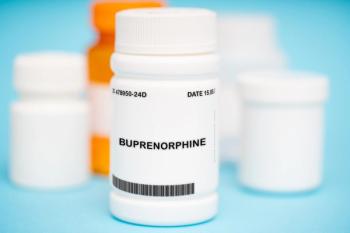
R.Ph.s caught between levothyroxine alternatives
The Food & Drug Administration approved another generic version of levothyroxine (Synthroid, Abbott) earlier this year. With a total of eight levothyroxine (T4) products on the market, generic manufacturers are happy, brand-name manufacturers unhappy, and endocrine physicians furious. The R.Ph. is caught between manufacturers, physicians, and the FDA.
The Food & Drug Administration approved another generic version of levothyroxine (Synthroid, Abbott) earlier this year. With a total of eight levothyroxine (T4) products on the market, generic manufacturers are happy, brand-name manufacturers unhappy, and endocrine physicians furious. The R.Ph. is caught between manufacturers, physicians, and the FDA.
According to the FDA, however, T4 products rated AB, or bioequivalent, do not require a new TSH test when patients are switched. FDA believes that small differences related to potency or performance between products, within products, across doses, or with aging are unimportant clinically, David Orloff, M.D., director of FDA's Metabolic & Endocrine Drug Products Division, told a public hearing in May. "FDA is confident of its methods, including bioequivalence standards, for determining therapeutic equivalence."
Dispensing the same product can be a tough standard to meet. So said Susan Bishop, associate director for regulatory affairs at the American Pharmacists Association. Some states allow or require pharmacists to switch brand-name prescriptions to a generic equivalent, as do many third-party payers, but pharmacy stocks also change, depending on price and availability. When a medication is switched, Wartofsky told the FDA hearing, 18%-20% of patients get confused and may stop taking their pills altogether. Patients do notice when the size, color, or shape of a med changes, he said.
The debate over levothyroxine switching dates back to the 1980s and 1990s. Synthroid, the first T4, came to market in the 1950s without FDA review. In 1997, the agency decreed that all oral T4s were considered new drugs and needed to obtain marketing approval under new drug applications. Supplemental NDAs led to the approval of generic T4s.
Annual sales of all T4 products are about $1 billion, according to Sally Schimelpfenig, levothyroxine product director for Sandoz. The generic substitution rate for T4s is about 25%, she told the FDA hearing-significantly less than in other generic categories. She suggested payers could save significant amounts by increasing the use of generic T4s.
Every product switch adds significant cost, Lisa Fish, M.D., chief of endocrinology at Park Nicollet Clinic in Minneapolis told the panel. Switching from the most expensive brand, Synthroid, to the least costly generic T4 saves about $4 per patient per month, based on retail prices at
FDA's final decision on T4s is in limbo. Comments will be accepted until Sept. 23.
Newsletter
Pharmacy practice is always changing. Stay ahead of the curve with the Drug Topics newsletter and get the latest drug information, industry trends, and patient care tips.




































